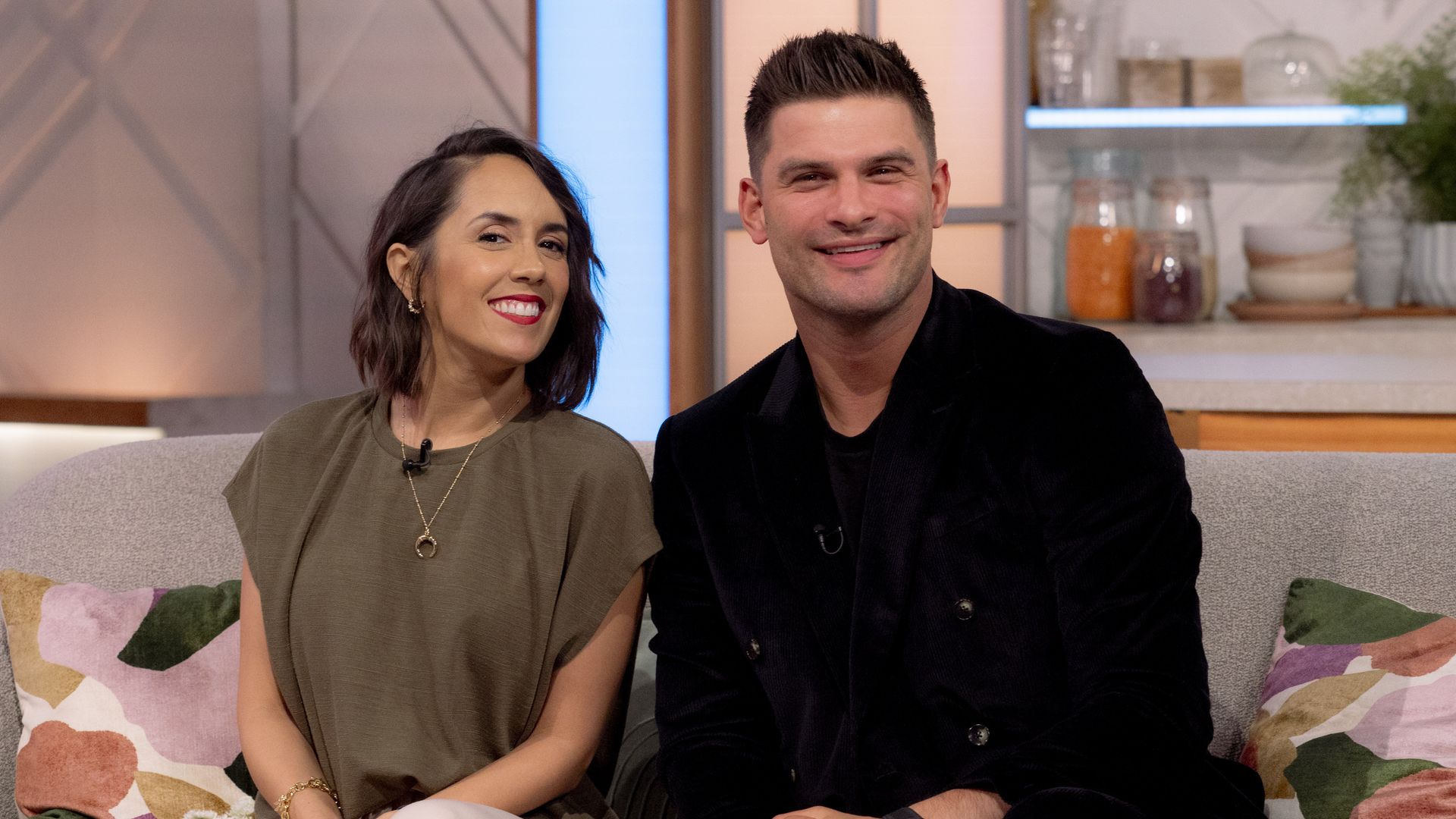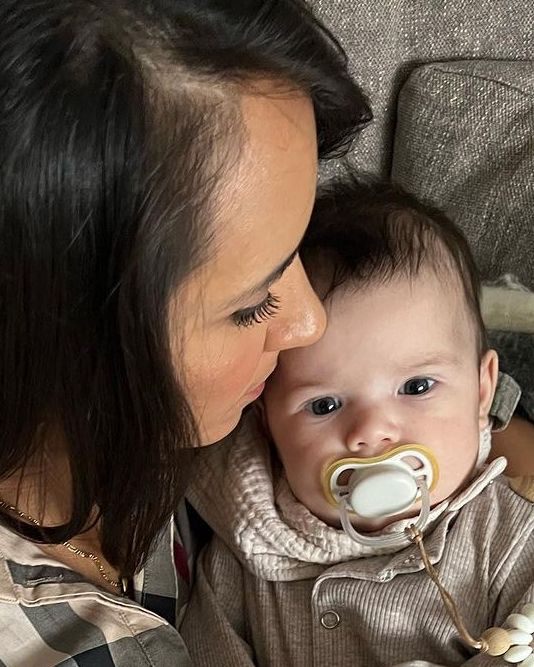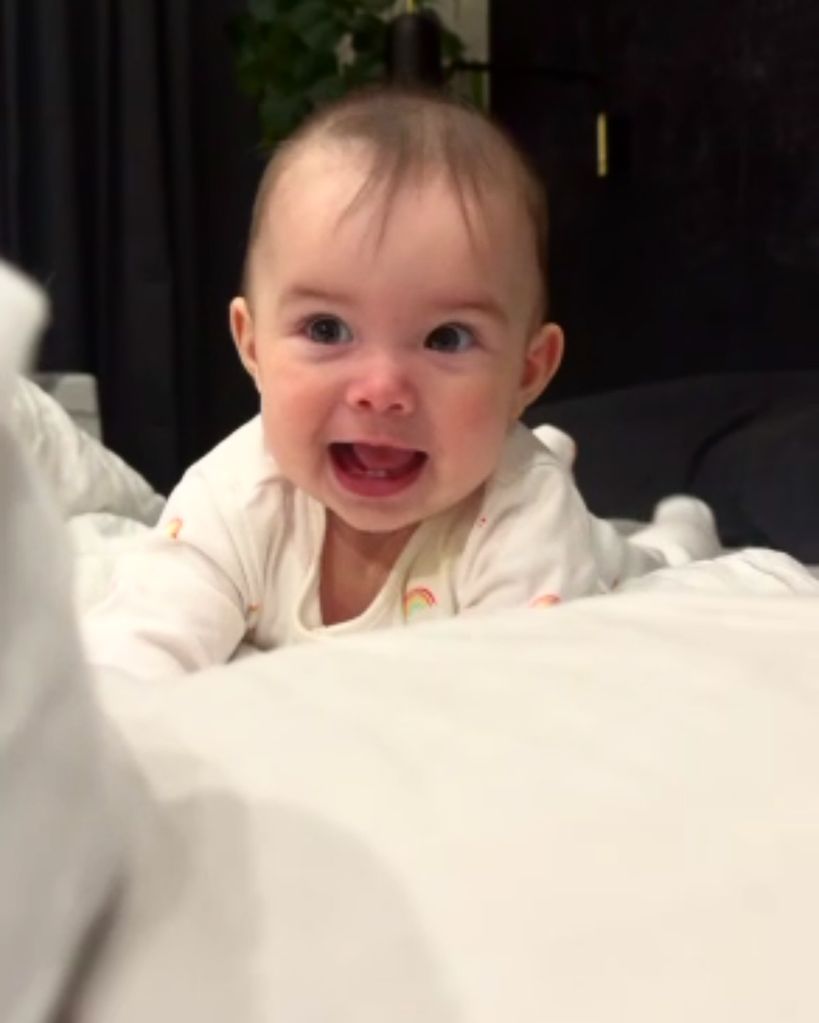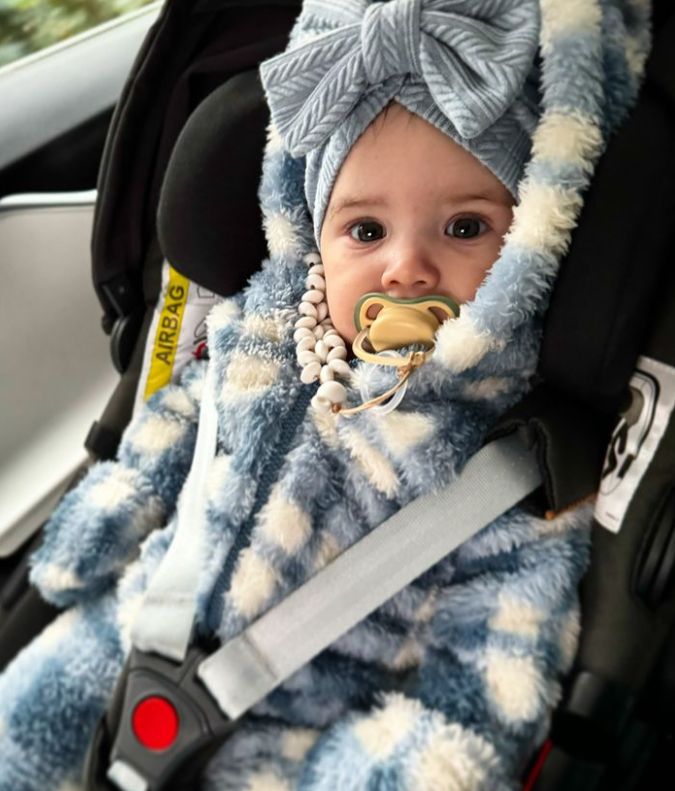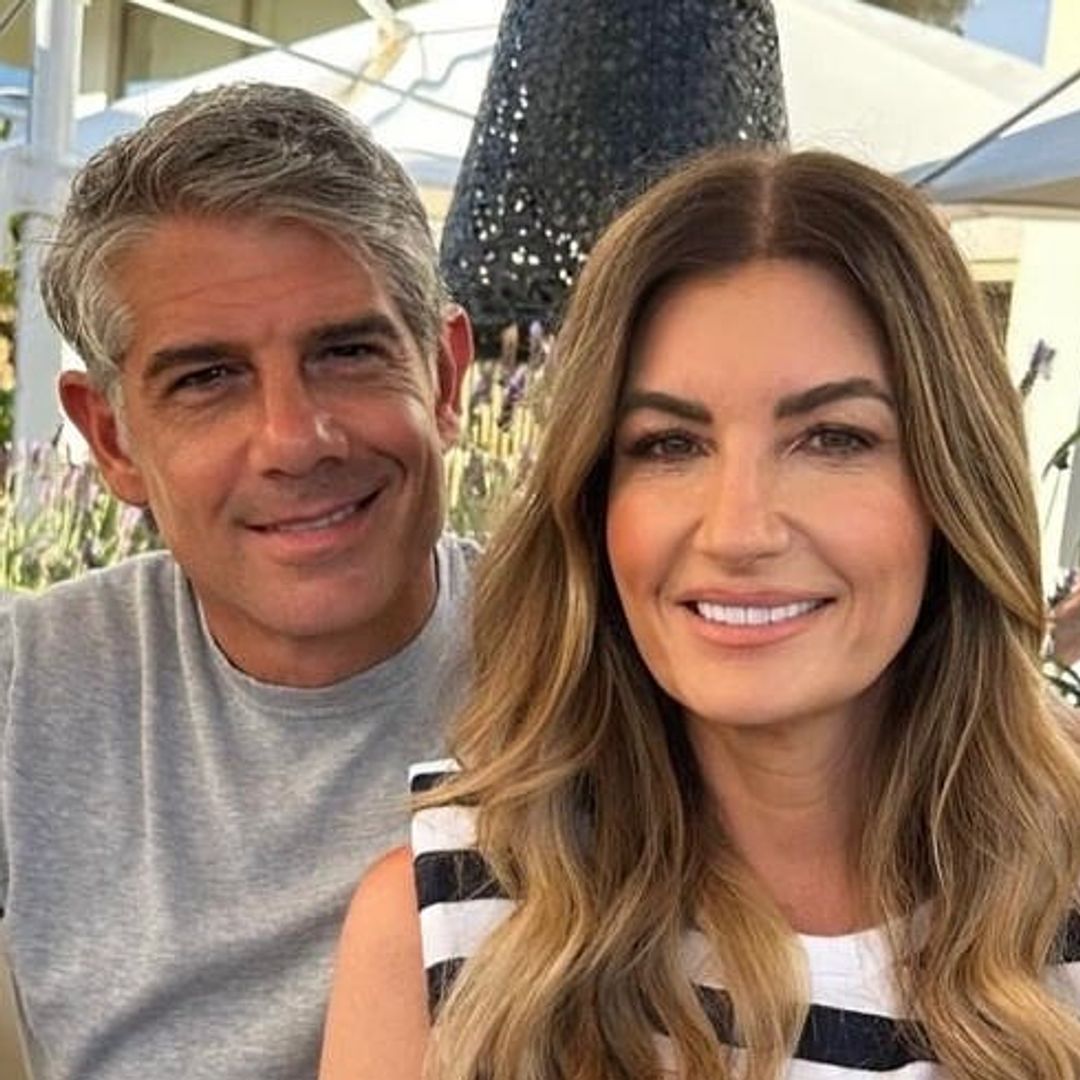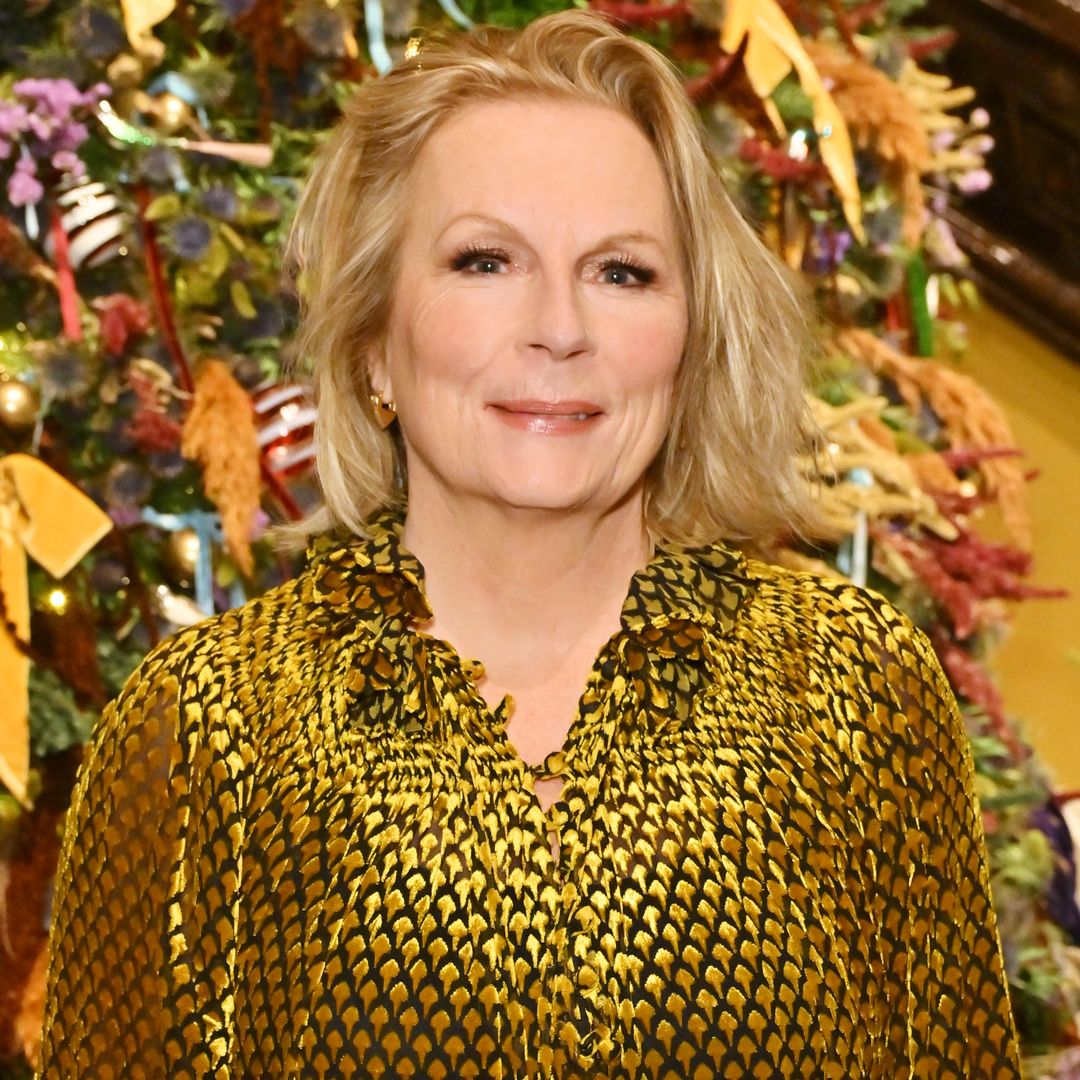TV star Janette Manrara celebrated a milestone moment in the sleep patterns of her baby girl Lyra this week, and parents will relate.
The host of Strictly: It Takes Two took to her Instagram page on Sunday to tell her fans about a breakthrough she and her husband, Aljaz Skorjanec, had with Lyra finally sleeping through the night.
Janette, 40, revealed it was all down to doing a "dream feed" with Lyra, which is when a parent gives their baby a milk feed while they are asleep in the late evening.
Janette updated her fans in the morning: "Hi everybody. Update: we slept! We slept! It worked. The late dream feed – didn't wake her up or take her out of the crib at night. Didn't feed her at night, didn't change her diaper at night."
She continued: "She woke up at four in the morning, then she woke up a little bit at five in the morning, but then I put her pacifier back in her mouth, cuddled her again and let her go back to sleep in her crib. She did so well and now she's having a nap – and now I know… not longer than an hour.
"Yeah, so she got to sleep. I don't look like it because I think I was just kind of on standby. Deep sleep doesn't exist after becoming a mother, that's for sure. Thanks so much for the advice, everybody, it worked. Fingers crossed it happens again today."
However, Janette's jubilation was short-lived because on Monday she revealed that Lyra had woken three times in the night between 12am and 6am. Janette, we feel your pain.
Janette's experience has got us wondering about 'dream feeds' and if they actually work. Is it worth the bother?
HELLO! asked Heidi Skudder, The Parent and Baby Sleep Coach and an expert speaker at The Baby Show for her view.
Heidi told us: "A dream feed is when you go into your baby later in the evening, usually at around 10-11pm and give them a feed in their sleep. Hence the term 'dream feed' – the idea of which is that if you fill them up just before you go to bed, then they are more likely to sleep for a longer chunk of time and be less likely to wake you up, usually just after or a few hours after going to bed yourself!"
"For many parents, a dream feed can work really well, and the baby gets into a pattern of going down to sleep at 7/8pm, feeding at 10/11pm and then sleeping through until the morning (6/7am onwards). Dream feeds are often useful with babies aged between four to six months, so not yet on solids but still needing to feed in the nighttime.
"As a night nanny for many years, I would often get to my client at 9pm and do a "dream feed" with baby at 11pm, which slowly meant that as they got bigger and older, they were able to go for a longer period of time until they were sleeping through."
Dream feeds aren't always the answer though, as Heidi explains: "Beware though, dream feeds do not work for everyone and if your baby has a more sensitive tummy or has any level of relux, dream feeds can actually make sleep worse!
"Putting milk into their tummy when they don’t need it and aren’t waking you for it, might cause them to be too full and then wake more frequently rather than less.
"The answer…try it and see! For some babies it is a total sleep game changer, and for others not so much."
Laura Thompson, a Paediatric Sleep Consultant at Sleepy Sweetpea, agrees: "Dream feeding is a method where babies are fed without fully waking and has proven invaluable for many parents seeking longer stretches of sleep.
"It's typically introduced around six weeks, and timing it during your baby's active sleep phase ensures a more substantial feeding without fully disturbing their rest. Aligning the dream feed with your own bedtime can maximize everyone's sleep.
"However, it's important to note that dream feeding carries risks, such as potentially disrupting your baby's sleep patterns and fostering dependency on extra nighttime feeds over time."
Heidi's new book ‘You Positive Sleep Book’ is out 18 April. You can hear more from Baby Sleep Coach Heidi on the Live Talks main stage at The Baby Show at NEC Birmingham from 10-12 May 2024.
Laura Thompson offers one-to-one sleep coaching at Sleepy Sweetpea.
